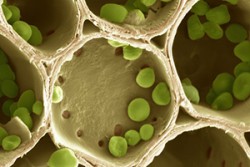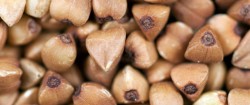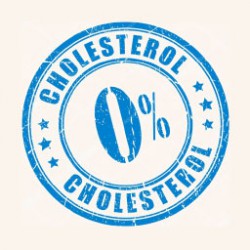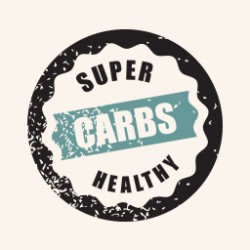0% - Gluten
0% - Sodium
0% - Chemicals
0% - Cholesterol
Magnesium, Iron
Potassium, Calcium
Fiber, Protein, Rutin
Phosphorus, Copper
Resistant Starch
Home » Resistant Starch
Resistant Starch
Buckwheat—especially buckwheat groats, and to a lesser extent buckwheat flour—contains a third type of fiber known as resistant starch. This type of starch contains the benefits of both soluble and insoluble fiber, and it may help to make you feel fuller and more satisfied following a meal that is high in carbohydrates. Resistant starch may also help you control blood sugar and insulin levels.
The benefits of buckwheat were illustrated when researchers in one study divided subjects into three groups: one group consumed boiled whole grain buckwheat groats, a second group consumed bread made with half buckwheat flour and half processed wheat flour, and a third group consumed regular bread made from processed wheat. The study found that the first group that consumed the boiled whole grain buckwheat groats had the lowest spikes in insulin and blood sugar after eating, closely followed by the second group that consumed the bread made from 50% buckwheat flour. The third group that consumed the processed bread had the highest spikes in blood sugar and insulin.

Fibre
Buckwheat contains a decent amount of fibre, which your body cannot digest. This nutrient is good for colon health.
By weight, fibre makes up 2.7% of boiled groats and is mainly composed of cellulose and lignin.
Fibre is concentrated in the husk, which coats the groat. The husk is kept in dark buckwheat flour, giving it a unique flavour.
Additionally, the husk contains resistant starch, which is resistant to digestion and is thus categorized as fibre.
Resistant starch is fermented by gut bacteria in your colon. These beneficial bacteria produce short-chain fatty acids (SCFAs), such as butyrate.
Butyrate and other SCFAs serve as nutrition for the cells lining your colon, improving gut health and decreasing your risk of colon cancer






















